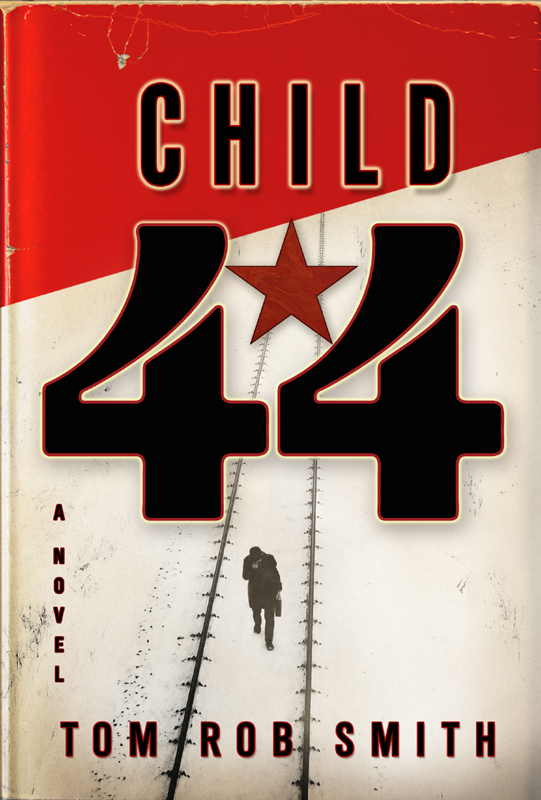
Child 44
Leo Demidov Series, Book 1
کتاب های مرتبط
- اطلاعات
- نقد و بررسی
- دیدگاه کاربران
نقد و بررسی

Starred review from March 3, 2008
Set in the Soviet Union in 1953, this stellar debut from British author Smith offers appealing characters, a strong plot and authentic period detail. When war hero Leo Stepanovich Demidov, a rising star in the MGB, the State Security force, is assigned to look into the death of a child, Leo is annoyed, first because this takes him away from a more important case, but, more importantly, because the parents insist the child was murdered. In Stalinist Russia, there's no such thing as murder; the only criminals are those who are enemies of the state. After attempting to curb the violent excesses of his second-in-command, Leo is forced to investigate his own wife, the beautiful Raisa, who's suspected of being an Anglo-American sympathizer. Demoted and exiled from Moscow, Leo stumbles onto more evidence of the child killer. The evocation of the deadly cloud-cuckoo-land of Russia during Stalin's final days will remind many of Gorky Park
and Darkness at Noon
, but the novel remains Smith's alone, completely original and absolutely satisfying. Rights sold in more than 20 countries.

March 15, 2008
Grisly, gruesome, and gory are just three ways to describe this debut novel by young British screenwriter Smith. While adapting a short story by sf writer Jeff Noon, Smith came across the true account of Soviet serial killer Andrei Chikatilo, who after killing more than 50 women and children was executed in 1994. His story inspired Smith to write this grim, 1953-set novel, which ties together just about all of the worst aspects of the Stalinist regime. The Ukrainian famine and the unrelieved horror of the gulag, among other historical hooks, add to the saga of ex-soldier and police official Leo Demidov, who dissects the morbid clues left by the killer. The paradox of crime in a workers' paradise denies any legitimacy to Leo's investigation, since, by definition, such repellent crimes are impossible. With some 20 foreign sales to date and film rights already in Ridley Scott's hands, this successor to Hannibal Lector's lurid mantle has nonstop plotting, a nonstop pace, and even a surprise ending. Horror genre readers will thrill to it; others may be advised to ask for a barf bag as well as their date due slip. Suspense collections in large libraries will likely need several copies to fill waiting lists. [See Prepub Alert, "LJ" 1/08.]Barbara Conaty, Falls Church, VA
Copyright 2008 Library Journal, LLC Used with permission.

Starred review from February 1, 2008
In the workers paradise of Stalins Russia, crime cannot exist. Loyal, hardworking citizens will have all their needs met by the state, making crime unnecessary. The one exception is political crime, and MGB (State Security) officer Leo Demidov works long hours arresting people and delivering them to dreaded Lubyanka Prison. Deeply patriotic, but covetous of the perks of his position, Leo knows that many of the people he arrests are innocent, and he knows that he could suffer a similar fate. He does, almost, when office politics, MGB style, dictate his transfer to the lowly militia in a small city hundreds of miles east of Moscow. There he discovers that a serial killer is preying on children in cities along the Trans-Siberian Railroad. Having lost almost everything, Leo seeks redemption by hunting the killer, but his effort makes him a high-profile enemy of the state (acknowledging that a serial killer could exist in the USSR is tantamount to treason). Child 44 powerfully personalizes the Orwellian horrors of life in Stalins Russia. Almost every page echoes Hobbes description of the life of man: nasty, brutish, and short. First-novelist Smiths pacing is relentless; readers wanting to put the book down for a brief rest may find themselves persevering regardless. Expect the same kind of critical acclaim for this compelling tale that greeted the publication of Martin Cruz Smiths Gorky Park (1981)more than 25 years ago. Like most first novels, Smiths debut isnt perfect, but its a very, very good read. Dont miss it.(Reprinted with permission of Booklist, copyright 2008, American Library Association.)

























دیدگاه کاربران